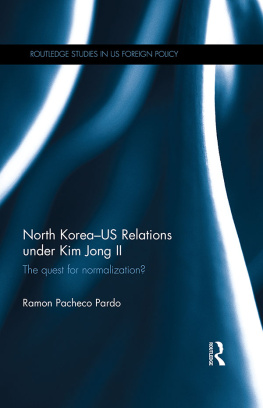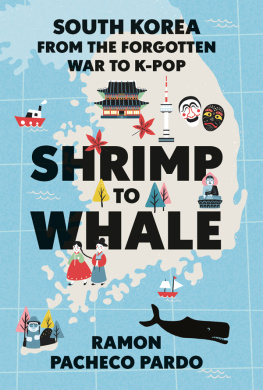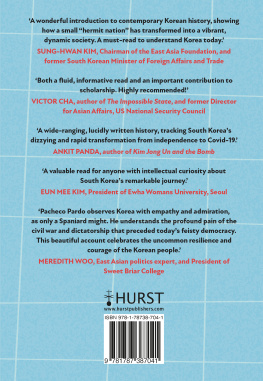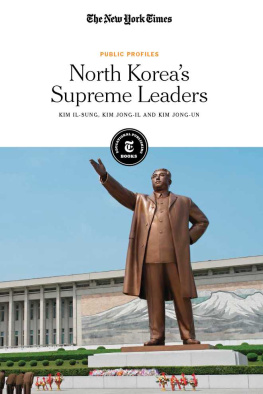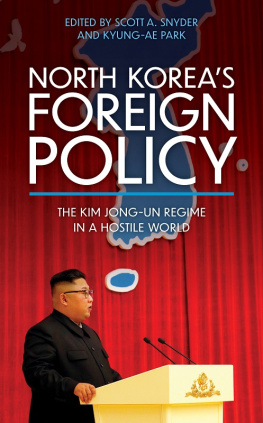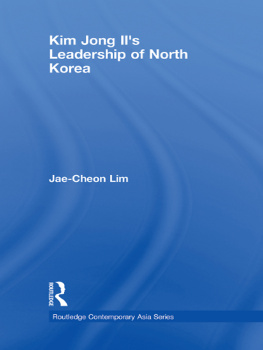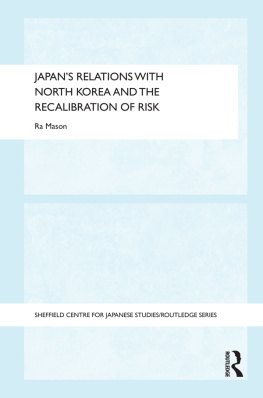North KoreaUS Relations under Kim Jong II
This book analyzes North Koreas foreign policy towards the USA during the Kim Jong Il era.
During this period, North Korea sought but failed to normalize diplomatic relations with the USA. Making use of theories of bargaining and learning in International Relations, the book explains how the inability of the Kim Jong Il government to correctly understand domestic politics in Washington and developments in East Asian international relations contributed to this failure. As a result, Pyongyang accelerated the development of its nuclear weapons programme with the aim of strengthening its negotiating position with the USA. However, towards the end of the Kim Jong Il era it became unclear whether North Korea was willing to reverse its nuclear programme in exchange for normal diplomatic relations with the United States. This book includes material from over 60 interviews with US, Chinese, Japanese, Korean and Russian policy-makers and experts who have dealt with North Korea. It also analyzes in detail Pyongyangs official media articles published during the Kim Jong Il era.
This book will be of great interest to students and scholars of US Foreign Policy, Korean Politics and International Relations alike.
Ramon Pacheco Pardo is a Lecturer in the Department of European & International Studies at Kings College London. His research interests include East Asias international relations and political economy.
North KoreaUS Relations under Kim Jong II
The quest for normalization?
Ramon Pacheco Pardo
First published 2014
by Routledge
2 Park Square, Milton Park, Abingdon, Oxon OX14 4RN
and by Routledge
711 Third Avenue, New York, NY 10017
Routledge is an imprint of the Taylor & Francis Group, an informa business
2014 Ramon Pacheco Pardo
The right of Ramon Pacheco Pardo to be identified as author of this work has been asserted by him in accordance with the Copyright, Designs and Patent Act 1988.
All rights reserved. No part of this book may be reprinted or reproduced or utilised in any form or by any electronic, mechanical, or other means, now known or hereafter invented, including photocopying and recording, or in any information storage or retrieval system, without permission in writing from the publishers.
Trademark notice: Product or corporate names may be trademarks or registered trademarks, and are used only for identification and explanation without intent to infringe.
British Library Cataloguing in Publication Data
A catalogue record for this book is available from the British Library
Library of Congress Cataloging in Publication Data
Pacheco Pardo, Ramon.
North KoreaUS relations under Kim Jong Il : the quest for normalization? / Ramon Pacheco Pardo.
pages cm (Routledge studies in US foreign policy)
Includes bibliographical references and index.
1. United StatesForeign relationsKorea (North) 2. Korea (North)Foreign relationsUnited States. 3. Korea (North)Foreign relations. 4. Kim, Chong-il, 1942-2011. I. Title.
E183.8.K7P314 2014
327.7305193dc23
2013049223
ISBN: 978-0-415-75039-4 (hbk)
ISBN: 978-1-315-76946-2 (ebk)
This book is to a large extent the result of research that I conducted for my PhD thesis. When I decided to embark on the adventure of studying for a PhD, I did not appreciate the need for good guidance. Thankfully, my guide was the best I could have hoped for. As such, Chris Hughes, my PhD supervisor, deserves special gratitude. I cherish all the meetings we have had since our first in October 2006. Discussing methods, research techniques, theory, empirical content, International Relations as a discipline and international relations as a common interest has been a pleasure throughout this time. I am especially thankful to him for helping me from the start to focus my research. This made the whole experience more enjoyable. I am lucky now to be able to call Chris my friend.
Fieldwork is always exciting and rewarding. However, it can also be a demanding experience if one does not have proper support. Therefore, I am extremely grateful to Soh Changrok for agreeing to supervise my work while in Seoul. He helped me to benefit as much as possible from my fieldwork in Korea, allowing me to make the most of my time there. My deep gratitude goes to him. Also in Seoul, Kim Sung-han did not hesitate to invite me to discuss Asian politics with him. He also kindly shared his deep knowledge of Korean international relations with me. I am thankful for his insights and comments about my project.
Chris Alden and Peter Ferdinand, the two members of my PhD viva examination panel, gave me invaluable advice on how to make my thesis into a book. Barry Buzan, Federica Bicchi and George Lawson, the three members of my upgrade panel, graciously shared their views on my research. The constructive criticism of all of them helped me to think about aspects of my research which I had not considered fully. Similarly, Mick Cox, Margot Light and Roy Allison generously offered their advice during their respective seminars. They helped me to focus my work better.
During the journey of writing a book, sometimes one feels overwhelmed. The following people helped not only by providing comments about my work, but in many cases by giving me their friendship as well. Therefore, I would like to thank Ana Alves, Gregorio Bettiza, R. David Edelman, Rebekka Friedman, Jim Hoare, Ben Holland, Charles Kartman, Zeynep Kaya, Torbjorn Knutsen, Maiko Kuroki, Jorge Lasmar, Seunghyok Lee, Jai S. Mah, Jen Mason, Jangnyeol Moon, Kevork Oskanian, Park Sung-Hoon, Chris Phillips, Henry Radice, Jeff Reeves, Rashmi Singh, Robert Sutter, Ee Loong Toh, Son-bo Woo, Jie Yu and Feng Zhang. I am also very grateful to the dozens of interviewees who gave me some of their time and shared their knowledge with me.
The Department of International Relations at the London School of Economics and Political Science provided me with a studentship throughout my years as a PhD student there, as well as grants for my fieldwork in Washington, DC. Hilary Parker, the Departmental Manager, deserves big thanks for her help with my applications for funding and for patiently answering all my queries. I am also grateful to the Korea Foundation for the fellowship that allowed me to conduct fieldwork in Seoul without having to worry about any possible financial difficulties. Taesang Kim, the Foundations Fellowship Programme Manager, welcomed me to Korea and was very kind to me during my stay there. The University of London also granted me funds for my fieldwork. Linda West, the Secretary of the Academic Trust Funds Committee of the university, was invariably helpful whenever I had a question.
Finally, I could have never completed this book without the patience and understanding of my parents, Ramon and Luisa, and my sister, Marisa. Their love and support was essential to me during these years. And above all, I thank my wife, Mina. Without her love and kindness this book would never have been finished.
Ramon Pacheco Pardo
London, 2013
The foreign policy behaviour of North Korea is one of the most intriguing, captivating and sometimes frustrating aspects of global politics in general and of the international relations of East Asia in particular. A hereditary communist dictatorship, one of the largest standing armies in the world, a stagnant economy, a Confucian mentality, weapons of mass destruction (WMD) and, of course, nuclear capability make it a unique country. Its location in the middle of one of the most economically successful and dynamic regions in the world, which is also home to two countries in possession of nuclear weapons, and where the only current superpower, the USA, retains a large military presence, confer North Korea with strategic importance due to its mere existence. Its involvement in the proliferation of WMD and nuclear materials, links with several Middle Eastern governments, and a continuous ability to resist diplomatic and economic pressure from the USA make North Korea relevant at the global level as a result of its behaviour. The fact that North Korea has proved to be one of the most impenetrable countries in the world for academics, journalists and intelligence officials alike has served to create a certain mystique around it.


